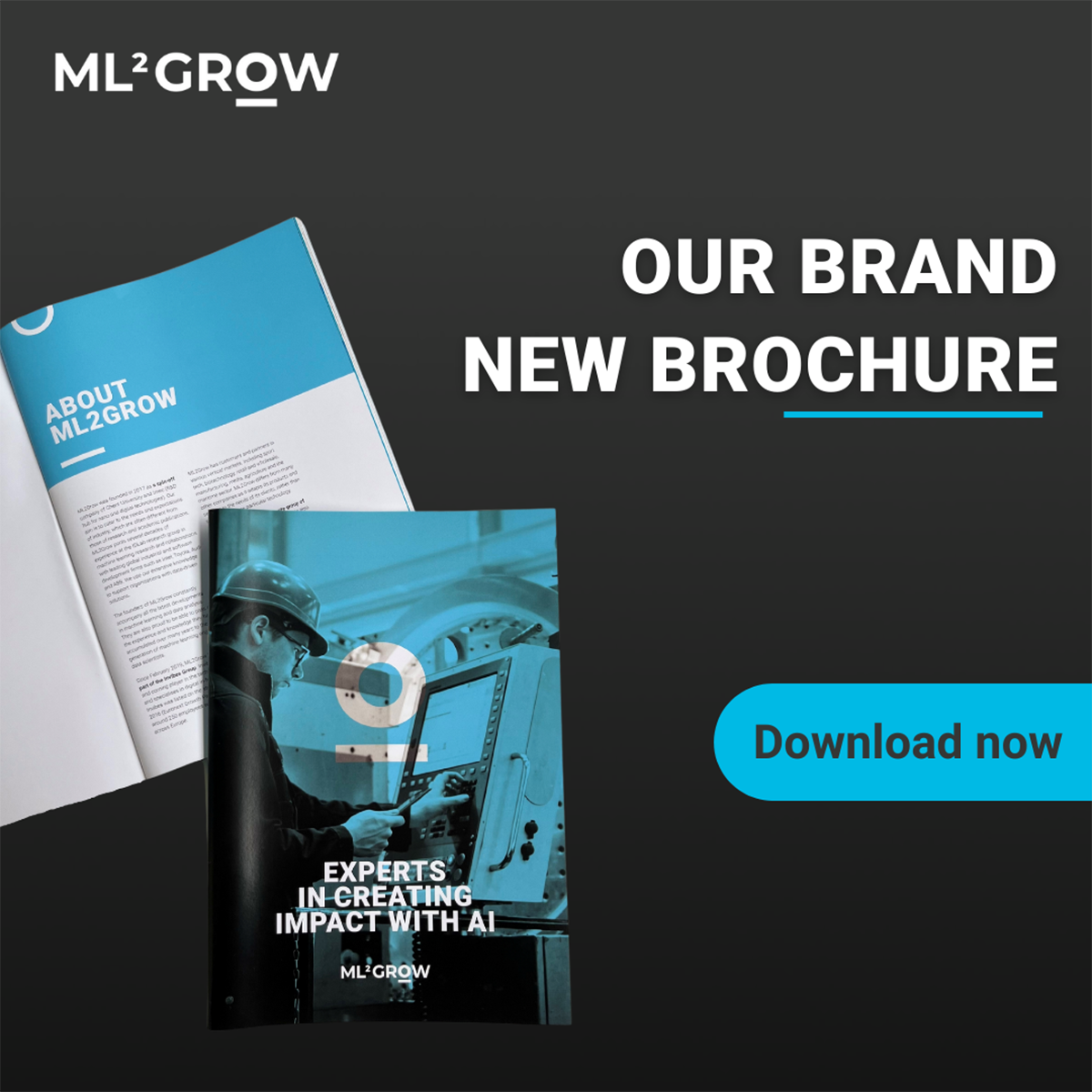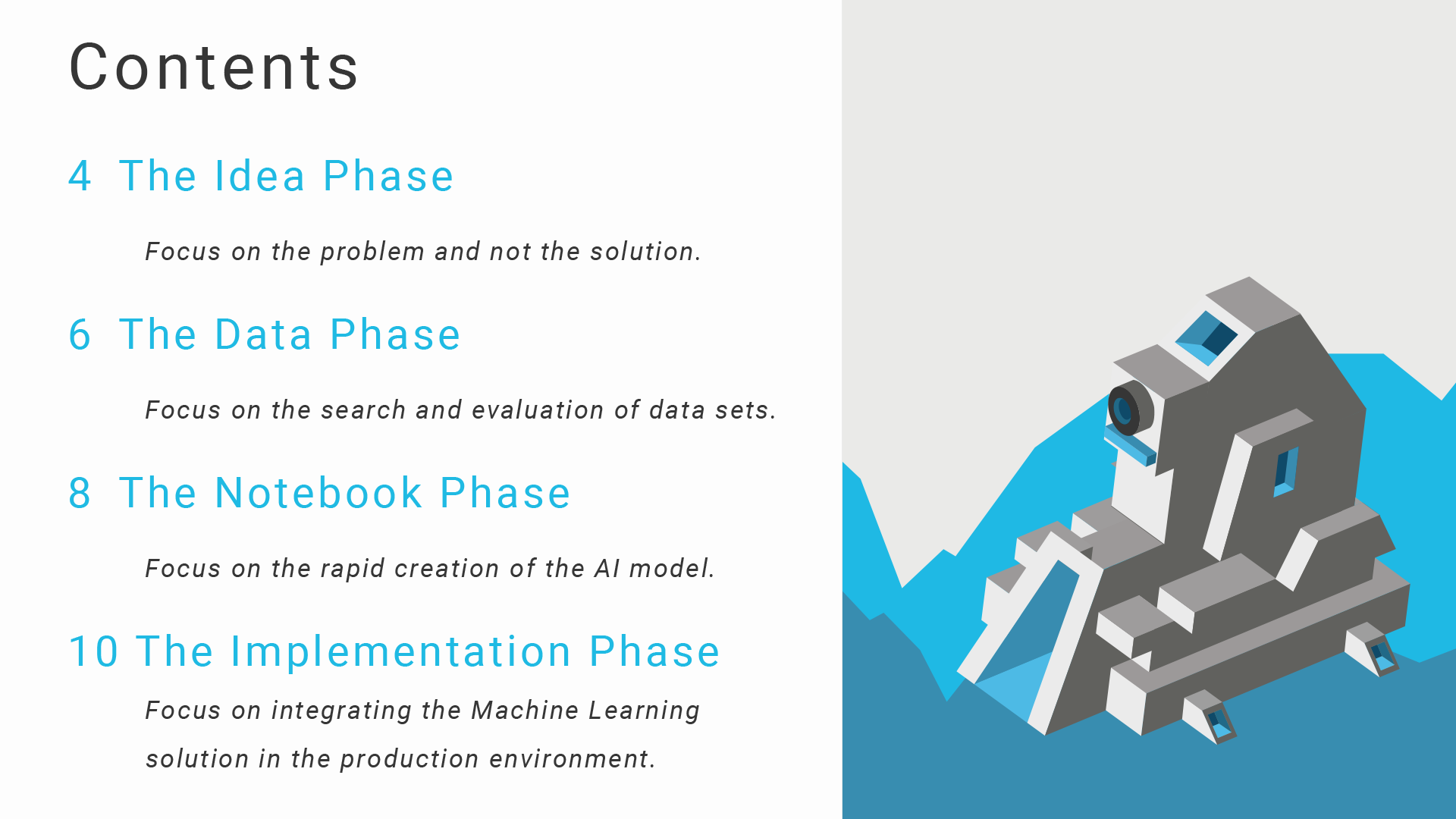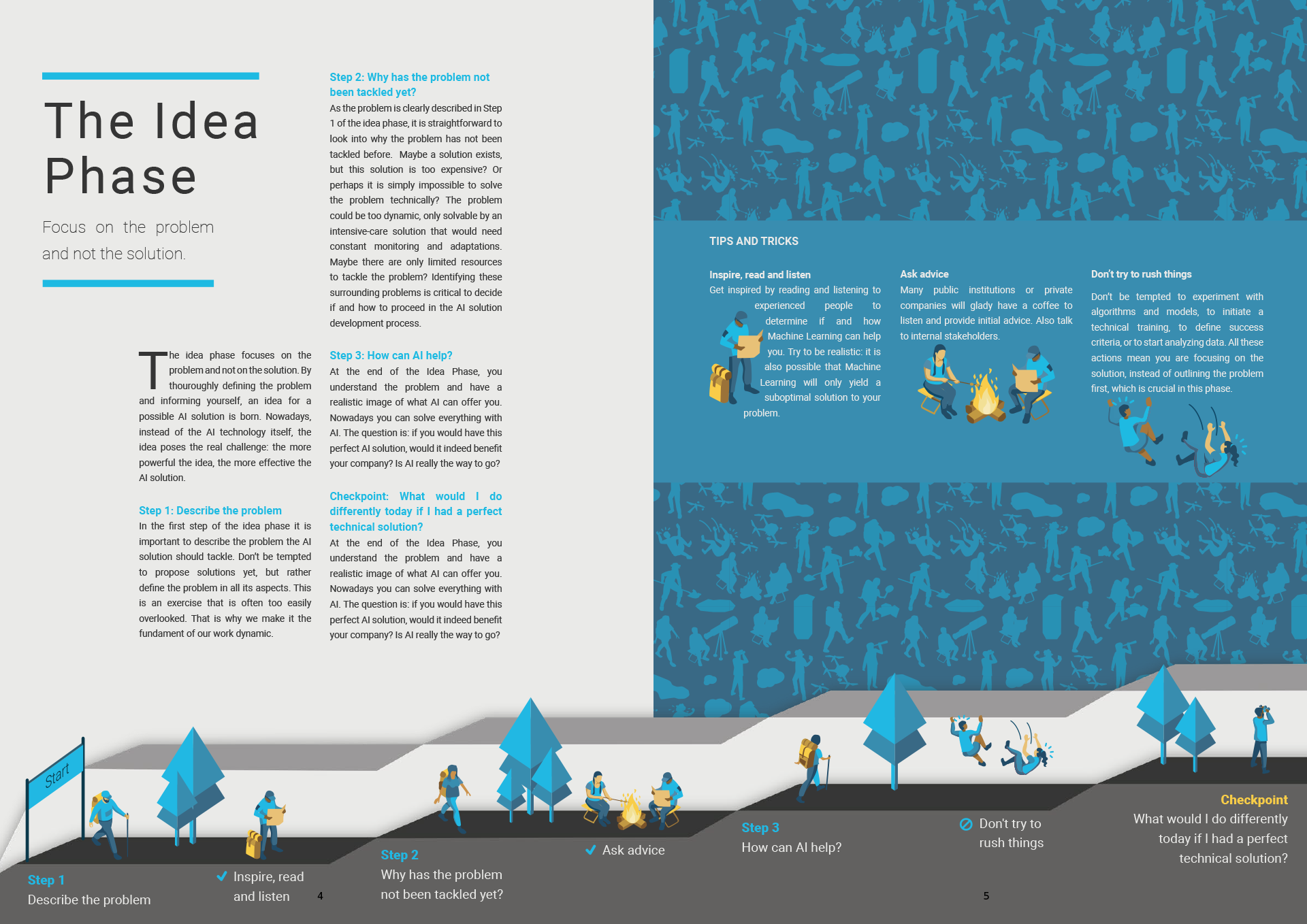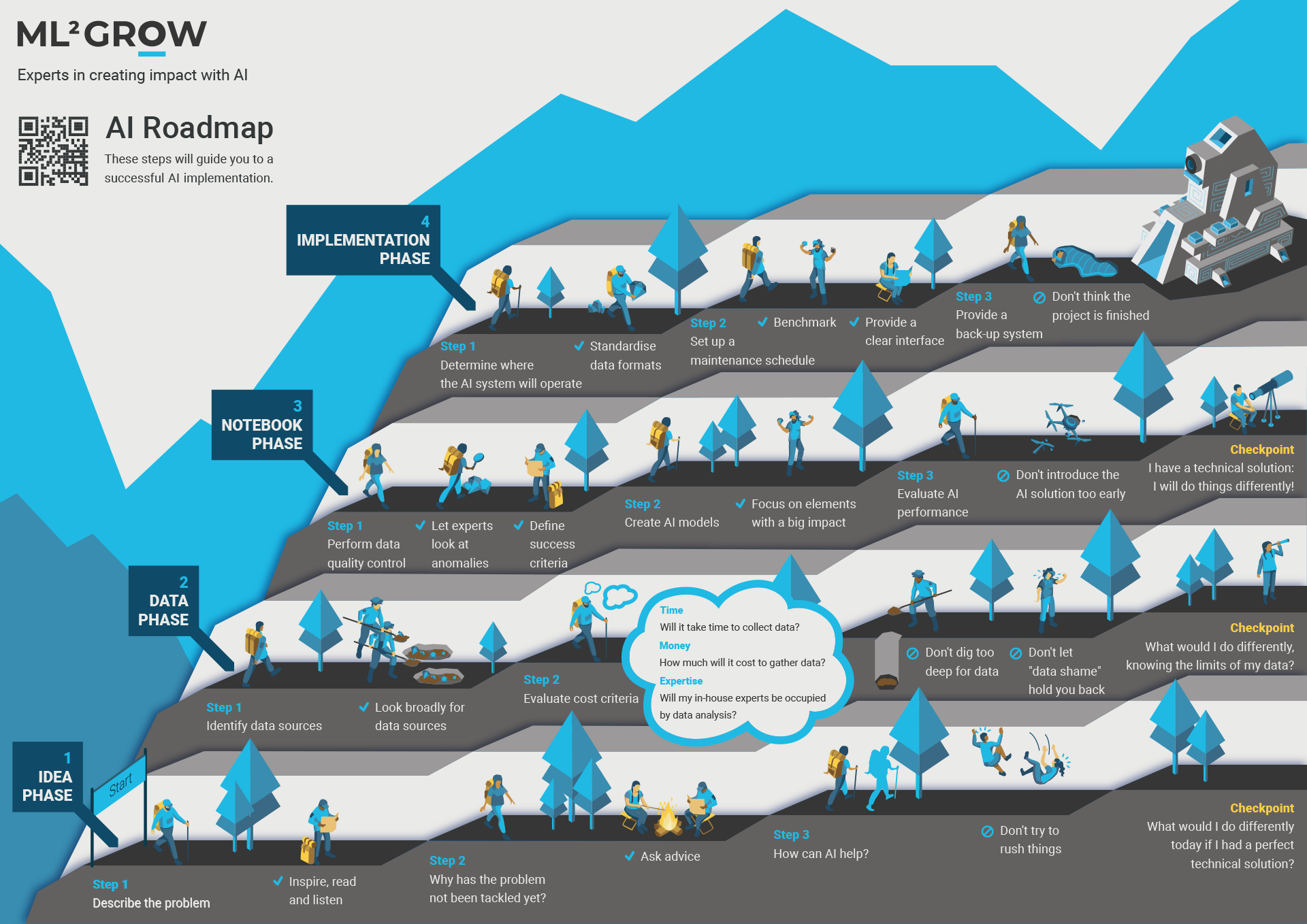Download
AI solutions brochure
In this brochure, we want to discuss the most promising AI technologies. These technologies have been around for a little while but are now sufficiently mature to be considered value-enabling technologies.
Forecasting

Over the years, changes to supply chains have impacted production and organisation within companies. This area where AI offers more benefits for demand forecasting than manual methods. It allows companies to increase the efficiency of their stock management, production planning, logistics and procurement of raw materials.
Computer vision

Another practical use of AI technology is computer vision. Powerful hardware, cameras and AI algorithms are already being deployed in the industry to automate inspections and other repetitive tasks. The only commercially available products were targeted at generic problems in the past. It is possible to build a flexible AI model tailored to your specific needs at a much lower cost.
NLP

Computers are also improving at understanding spoken and written language thanks to innovations in Natural Language Processing. With the latest AI algorithms, computers can understand the context in which words appear. This boosts the power of search engines and makes it possible to automate administrative processes extensively.

AI roadmap
It might seem like a steep mountain, but we have paved an easy path to the top for you.
Are you looking to adopt AI but don’t know how to begin?
Harsh truth: many business leaders we talk to see AI as something to be delegated to IT. This mindset is not accurate and leads to inevitable failures. AI can impact every part of the business – from manufacturing and supply chain to user experience. Moreover, many SaaS solutions are out there claiming to use AI already. Many questions about buy-or-built should start to arise. However, in any case, it’s always true that every solution will be tailor-made to solve a very specific problem (i.e. narrow AI).
Furthermore, AI is driving a new cultural shift in which data-driven facts trump opinions and where probabilities are used to address uncertainties. We see an AI-enabled organization where people are supported to continually question and learn and where autonomous teams will be empowered to quickly adapt to market or environmental changes.
Thirdly, AI experiments tend to be random ‘Proof-of-Concepts’ to understand how the technology works with little attempt to link them to any business strategy or roadmap. Consequently, businesses are often no better off understanding the impact of AI on their business than they were at the outset. In our experience, for AI experiments to provide any insight into AI’s potential impact on business outcomes, they need to take place within a clear business objective, and there needs to be structure to validate the experiment’s results.
Lastly, to yield the maximum potential from AI, it is required to transform the whole/part of the organisation as the data used by the model could be generated anywhere in the organisation. In other words, business leaders need to assemble cross-disciplinary teams capable of pooling their respective areas of expertise to maximise the impact (i.e. busting the internal silos). The exact skills these teams require depend on the business problem or set of problems the company is trying to solve with AI.
ML2GROW can provide strategic advice on embedding AI successfully into your organisation. We have business strategists who have more than ten years of experience in establishing and implementing digital transformation projects. They will establish your strategic AI roadmap in close collaboration using our best practices on digital strategy, data governance, a ‘Center of Excellence’ and more.


